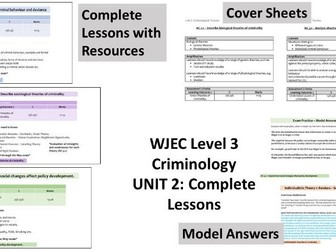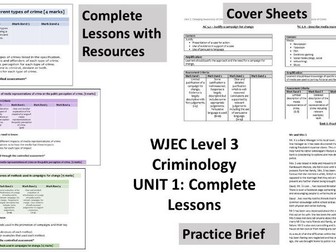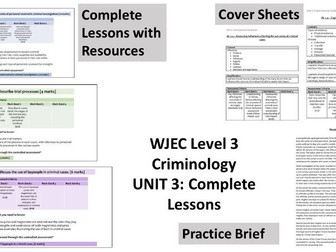Unit 2 Criminology: Complete Lessons and Resources
WJEC Level 3 Criminology Lessons and Resources
A complete set of lessons for all ACs to prepare students for the Unit 2 External Exam. The set contains PowerPoints for each AC along with relevant resources that accompany each PowerPoint. The lessons incorporate a range of different activities to support understanding and note taking. Each PowerPoint also has examples of exam style questions and some model answers. The set also contains cover sheets which can be printed out and put into student folders to help organise and divide their notes.
The following ACs are covered:
AC 1.1 - Compare criminal behaviour and deviance
AC 1.2 - Explain the social construction of criminality
AC 2.1 - Describe biological theories of criminality
AC 2.2 - Describe individualistic theories of criminality
AC 2.3 - Describe sociological theories of criminality
AC 3.1 - Analyse situations of criminality
AC 3.2 - Evaluate the effectiveness of criminological theories in explaining criminality (this AC is covered within AC 2.1, 2.2 and 2.3)
AC 4.1 - Assess the use of criminological theories in informing policy development
AC 4.2 - Explain how social changes affect policy development
AC 4.3 - Discuss how campaigns affect policy making


